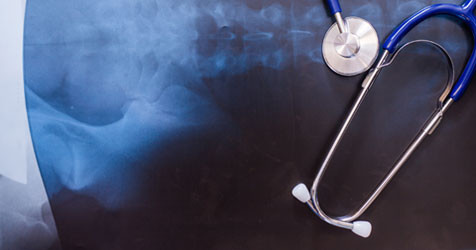WHAT IS OSTEOPOROSIS?
Osteoporosis is a bone disease that occurs when the body loses too much bone, makes too little bone, or both. As a result, bones become weak and may break from a fall or, in serious cases, from sneezing or minor bumps.
Osteoporosis means “porous bone.” Viewed under a microscope, healthy bone looks like a honeycomb. When osteoporosis occurs, the holes and spaces in the honeycomb are much larger than in healthy bone. Osteoporotic bones lose density or mass, and contain abnormal tissue structure. As bones become less dense, they weaken and are more likely to break.
WHAT CAUSES OSTEOPOROSIS?
Osteoporosis occurs when there is an imbalance between new bone formation and old bone resorption. The body may fail to form enough new bone, or too much old bone may be reabsorbed, or both.
HOW CAN YOU STOP, SLOW, OR REVERSE OSTEOPOROSIS?
There are a few ways in which you can ensure that your bone is healthy. These are:
- Carbonated beverages such as soft drinks, Champagne, and sparkling water leach calcium from your bones. Women need to reduce their intake of carbonated beverages.
- Excess protein intake causes acidity in the body, which in turn causes calcium to be lost in the urine. Most people need only two to 4 ounces of lean protein, three times a day.
- Blocking stomach acid significantly increases the risk of osteoporosis.
- Each cup of coffee that you drink makes you lose 150 mg of calcium in your urine. Chemically decaffeinated coffee is not the answer either though, because it contains harmful chemicals that interfere with the detoxification process. Naturally, decaffeinated teas are a better option, but if you must drink caffeinated coffee, at least increase your calcium intake by 150 mg for each cup you drink.
- Calcium citrate and calcium hydroxyapatite are the best forms of calcium to take. They need to be taken on an empty stomach for best absorption, and only 500 mg at a time (that’s all our bodies can absorb at one time). A total dose of 1000 to 1200 mg per day is adequate for most menopausal women.
- Vitamin D helps to absorb calcium, and put it in the bones. It is also important for immune system modulation, depression, and autoimmune disorders. It is made in your skin when you get out in the sun.
- Hormonal decline is one of the most common reasons for bone loss after menopause in women. Andropause, the male equivalent of menopause, also causes bone loss in men. Adequate levels of estrogen, progesterone, and testosterone are important for bone maintenance.
- Excess refined sugars and starches, elevate your insulin levels and cause an increase in osteoporosis. The ideal diet is one called a “low glycemic index” diet.
- Stress raises cortisol levels. If cortisol levels are high for long periods of time, it can cause bone loss. Cortisol antagonizes insulin and leads to insulin resistance, eventually raising the blood sugar and causing calcium loss in the urine. As little as 25 teaspoons of sugar can cause calcium to be lost in the urine.
- When the muscles pull against the bones during exercise, it stimulates the bones and tells them that they are needed. Any weight-bearing exercise such as walking, hiking, climbing stairs and weightlifting can increase bone density. As little as 15 to 30 minutes a day can be helpful.
WHY KIMS?
At KIMS, we are a team of specialists (doctors, nurses, technologists and administrative staff) with expertise in treating people who have or are at risk for low bone density and fractures as well as osteoporosis.

